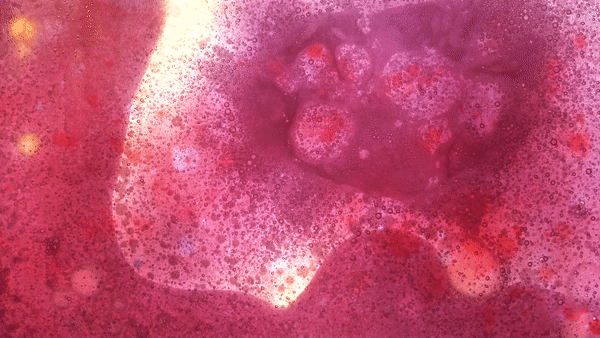Flesh: A letter from the editors
The introductory essay to our special content series all about our changing relationship to flesh and the body.
By Ian Dull, Sandra Cariglio, and Filip Lau
Sex is more ubiquitous and less taboo than ever. And yet we find ourselves in a sex recession. We are more mindful than ever about our relationship to technology. And yet the next big tech innovations drive us deeper into virtual worlds and into relationships with disembodied AI agents. The forces and processes of nature – mold, fermentation, ecosystemic thinking, evolution – are creating excitement out of unpredictability in food, medicine, beauty, design, and media. And yet we are precision engineering our way to longevity. What does it all point towards?
At ReD, we believe we are witnessing an historic renegotiation of the most basic, material, and sensuous elements of our existence – our flesh.
In this, we see a challenge and an opportunity for all businesses: if our meatiest, most bodily ideas of ourselves and the world around us are changing, what will take their place? How might that change our patterns of consumption? How will it change what makes us desire something, feel connected to someone or something, and the ways we want to interact with things, companies, and, most importantly, each other?
We contend that the new ideals, desires, and relationships to our bodies taking shape will influence the success of new technologies – from computing to biotech to materials science – new products – from beauty care to cars – and companies’ stances in the public sphere – from political statements to sustainability investments. Our shifting relationship to our flesh is key to anticipating the logics of the body that will govern future commercial opportunities.
What is our flesh saying?
Conceptions of flesh have been a central concern throughout history. Academics have characterised our established relationship to flesh in the 21st century by erasure: “Real life is today threatened with erasure,” writes David Haziza in his 2022 essay, “The Trials of the Flesh”. “100 different techniques create a ‘perfect’ body, detoxified, neutralised, forgetting how much real organisms stink, age, and die – which in fact makes them alive, and thus desirable – terrible and sublime all at once. We are systematically devitalising existence. In place of blood, plastic already triumphs.”
Yet recently, in our visual culture, societal discourses, aesthetics, consumption, technological and biological breakthroughs, money, nearly everywhere, we see a shift away from erasure of the body, from a paradigm of approaching the body with a linear, logical, neutral, and mechanical mindset and towards an embrace of the uncontrollable, felt, impassioned, and organic. Our flesh is, to put it simply, becoming fleshier.
Many of the signals we are now observing point to that approach evolving, bringing our bodies back into the focus. We see this as a substantive shift, accelerated or bolstered by a number of underlying societal drivers that seem unlikely to abate:
Ecological decline and the climate crisis: We are renegotiating our relationships to the planet, fueled by the human impacts on ecosystems and climate change
New sexual revolution: Taboos and stigmas have rapidly evolved around sex, pleasure, and sexual practices, while societal acceptance of ever broader notions of gender and sexual orientation have rapidly evolved
New ‘natural’ technologies: The last decade has seen significant advances in food, biotech, and more in terms of our ability to harness natural processes and biology to ‘engineer’ new products and treatments in ways perceived to be natural
Blended physical-digital networks and worlds: We increasingly live and represent ourselves fluidly between physical and digital worlds with new technologies, from AI to mixed reality to neuroprosthetics, that only promise to break this boundary down even further
‘Rediscovered’ life forms and knowledge: We have (re)discovered a fascination with previously unheralded life forms around us, from mushrooms to the gut microbiome, and taken renewed interest in untamed and mystical compounds like psychedelics
But, as they say, some habits are hard to break. Many of the behaviours we are observing today are in tension with the linear and mechanical paradigms which have long been the norm. Often, these show up in culture as divergent practices. In beauty, neutral movements in makeup have given way to a focus on, for example, natural glow. In technology, classic input/output computing experiences are evolving with new waves of wearables on the horizon. Our curiosity about the natural logics of the body appears to be in tension with our trained comfort in adapting everything to our will, aspirations, and desires.
We anticipate this tension – between immersion in the body and expansion of the body – will endure in the coming years. On the one hand, we anticipate that this will draw people deeper into organic, messy, and meaty ideas of the body – into viscerality, disgust, sexuality, and surprise; into sensory delight, frictions, uncertain textures, and bombastic colours. On the other, we anticipate that this will deepen our exploration of plastic, malleable, and boundless ideas of the body. Our flesh is changing and now and in the future, we believe new opportunities will arise from taking a closer look.
Where should we be looking?
We see three areas of evolving behaviours to pay attention to and continue to explore further.
Sex and Intimacy
Sex appeal and imagery have never been more omnipresent yet simultaneously receding from the private sphere – with rising rates of loneliness, celibacy and declining fertility in many parts of the developed world. The demand for greater representation of diverse bodies and the de-stigmatisation of previously taboo topics around the body is growing in tandem with a disappearance of ‘real’ bodies – in their imperfections, and perishability – from the public sphere.
Key industry questions:
In advertising, will sex still sell? What alternate ‘dreams’ will companies tap into to appeal to growing segments for whom romantic love is not an end goal?
What investment opportunities will come from the rise of ‘individual pleasure’ and intimacy replacement industries?
What new body aesthetics and beauty standards will take hold as we continue negotiating our relationship to flesh?
In what ways, and through what justification mechanisms, can pleasure, opulence, leisure be reclaimed for different customer segments?
Nature and Decay
The rise in appeal of natural materials and aesthetics that look ‘alive’ point to a desire to move beyond the anthropocentric ‘extraction paradigm’ – looking at nature as a life form to co-create with rather than a resource to be optimised.
Key industry questions:
Should food, cosmetic, laundry, and nutraceutical producers continue to lean into sterile purity, or will growth and innovation come from more ‘living’ paradigms?
What drives desire for new ‘organic’ materials like mushroom leather and algae? How can this drive R&D and positioning of new consumer goods and food products?
Will successful future sustainability products and technologies be defined by clean techno-optimism, or more harmonious or luscious relationships with nature?
How will changing ideas of our place in nature and the coming ecological crisis shape the appetite for anti-aging, longevity therapies and solutions, and our attitudes towards end-of-life care?
Technology and the Body
Next-generation augmented and virtual reality wearables and the explosion in generative AI are bringing digital technologies into the messier spaces of human creativity, relations and experience, and front-and-centre in our physical worlds, while bringing our bodies deeper into virtual worlds. As these technologies take hold in the market, we are building more intimate, dynamic, and sensorial relationships to technology that challenge our conventional ideas of human-machine interaction and technology’s place in our physical and digital worlds.
Key industry questions:
With the renewed interest in our bodies, what are the metaphors and relationships that we should be thinking within and building for, beyond ‘tools’? How will human-like, but disembodied AI agents shape the roles for technology and its place in our networks?
What kinds of ‘superpowers’ are relevant for technology to provide for us as we turn back towards an interest in experiencing and enhancing the body? What experiences of immersion and embodiment should technology companies be striving for?
How will a renewed focus on viscerality reshape physical and digital product design? How much will physical objects matter? Will tech aesthetics move away from minimalism?
What kinds of media will capture the attention of future consumers? Will immersive or textural experiences like ASMR grow in importance vs. story-led media?
We invite you to immerse yourself in this special series and please click here if you’d like to continue the conversation with us.
Our Special Series on Flesh




